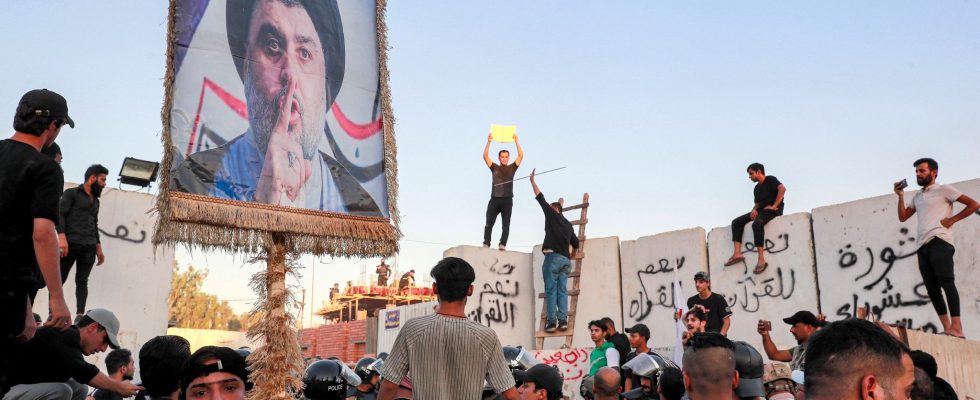After Sweden, it is now up to Denmark to attract the wrath of several Muslim countries. Two Koran burnings were staged outside the Iraqi Embassy in Copenhagen, one on July 21 and the other on July 24. The far-right Danske Patrioter movement posted a video on its Facebook page of a man burning what appears to be a Koran, before stomping on the Iraqi flag.
The Danish Foreign Ministry immediately denounced a “shameful” and “provocative act, which hurts many people”. But that was not enough to calm Badgad’s anger. The Iraqi government “strongly” condemned the burnings in a July 24 statement. And he was not the only one: a thousand Iraqis tried to march on the Danish embassy, at the call of the influential religious leader Moqtada Sadr. They were dispersed by the police with truncheons and tear gas.
In southern Iraq, the Danish Refugee Council NGO reported an “armed attack” on its premises near Basra. She assured that her staff were “physically unscathed” but that “structures” had been set on fire.
Other burnings in Sweden
If the escalation is so important, it is because other burnings of the Koran have already taken place in Stockholm last week. An Iraqi refugee in Sweden, named Salwan Momika, held two mini-rallys in which he set fire to a few pages of the holy book. In response, Moqtada Sadr’s supporters burned down the Swedish embassy in Baghdad on July 20.
Shortly after, the Swedish ambassador was expelled from Iraq. The country also announced the suspension of the license of the Swedish telecom equipment giant Ericsson on its territory. For its part, Stockholm has begun the repatriation of its embassy staff for security reasons. While condemning the burnings of the Koran, she explains that she cannot ban them because of the freedom of assembly, guaranteed by the Constitution.
International outcry
The crisis has become international. After Iraq, other Muslim countries have condemned the Koran burnings that took place in Denmark and Sweden. Algeria, for example, summoned their diplomatic representatives, in a press release published on July 24. She asks them to “take all necessary measures to prevent the recurrence of such acts, hated by all monotheistic religions, international laws and customs.
In Tehran, Iran, hundreds of demonstrators waved Iranian flags and copies of the Koran on July 21. Others set fire to the Swedish flag and threw eggs and tomatoes at the Swedish embassy. Iranian Foreign Minister Hossein Amir-Abdollahian later said no Swedish ambassador would be accepted until “concrete steps” were taken to prevent further desecration.
Saudi Arabia and the United Arab Emirates have summoned Swedish charge d’Affaires to their countries to condemn the burning of the sacred book. Another Gulf country, Kuwait has announced that it is working for the holding of an “urgent meeting” of the Organization of Islamic Cooperation (OIC) and the adoption of “concrete measures guaranteeing that such acts do not happen again”.
Finally, on Monday in Baghdad, Iraqi Prime Minister Mohamed Chia al-Soudani also received ambassadors from European Union countries. Referring to these desecrations, he considered that they had “no link with freedom of expression” and called on all States to “fight against these racist acts and all those who incite violence”, according to a press release.
